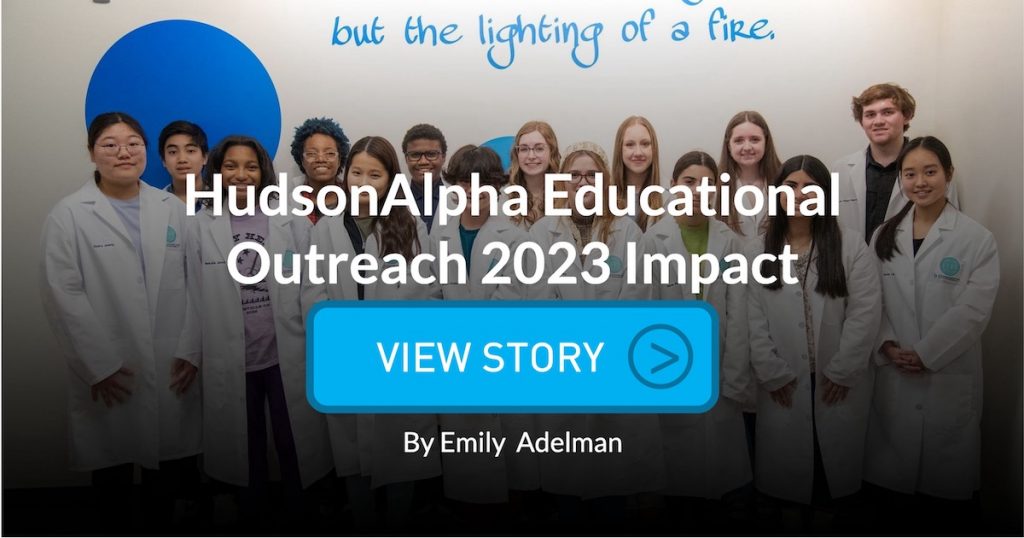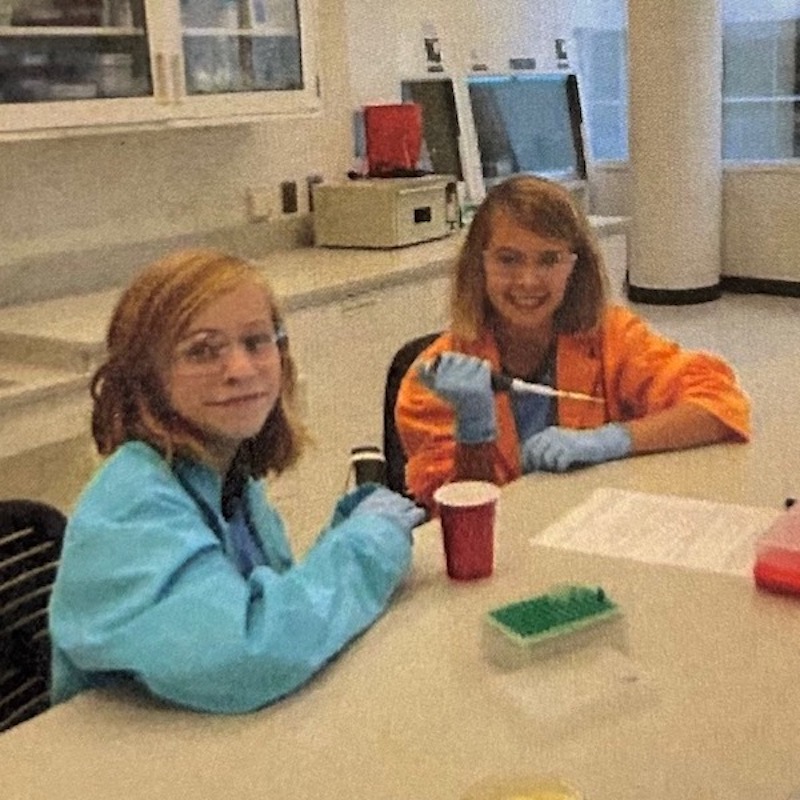Huntsville, Ala. — HudsonAlpha Vice President for Educational Outreach Neil Lamb, PhD, was invited to testify before Congress on Wednesday, March 15, about STEM education. Sen. Roy Blunt, Chairman of the Appropriations Subcommittee on Labor, Health and Human Services, Education and Related Agencies; requested Lamb to offer his views on STEM education and workforce as well as efforts taken by HudsonAlpha.
Lamb presented during the subcommittee hearing, “STEM Education: Preparing Students for the Careers of Today and the Future,” and highlighted how Alabama students, educators and the biotechnology industry have been positively impacted by the federal initiatives that supported HudsonAlpha’s educational programming.
“The Educational Outreach team provides educational tools for learners of all ages and our programming extends from early career exploration for children to in-depth workshops for senior citizens,” said Lamb. “Nearly 80 percent of Alabama high schools use HudsonAlpha-designed classroom kits and our workshops and summer academies benefit a network of over 500 Alabama educators. As a result, we have a unique understanding of the current state of STEM literacy as well as the ingredients required to assemble a pathway of lifelong learning.” 
There were also testimonies from other leaders in education including Caroline King, chief policy and strategy officer of Washington STEM; Sarah Tucker, PhD, chancellor of the West Virginia Council for Community & Technical College Education; and Larry Plank, Director Of K-12 Science, Technology, Engineering & Mathematics Education Hillsborough County Public Schools.
Testimonies were followed by a question and answer session where Sen. Blunt asked Lamb about HudsonAlpha’s use of federal funding, specifically the National Institute’s of Health Science Education Partnership Award (SEPA). SEPA funds innovative pre-kindergarten to grade 12 STEM and Informal Science Education (ISE) educational projects.
“SEPA was used to develop Touching Triton, an online game about common complex disease risk. The return on investment is that it helps students see how biomedical research is applied to their lives…especially students that don’t have access to this type of information.”
Lamb said the invitation from Sen. Blunt provided an opportunity for a national discussion about the potential impacts that genomics has on our world.
“The world we live in is increasingly shaped by genetics from human health, to food security and it was an honor to talk with the leaders in Congress that are shaping policy around these issues,” said Lamb. “I’d like to thank the committee for providing this opportunity to speak about the importance of supporting STEM education and workforce preparation. I would also like to thank our state’s delegation, specifically Sen. Shelby, for the continued support of this issue and of HudsonAlpha. Sustained federal support for STEM is critical, especially in the face of fierce competition from other countries seeking to overtake our position in achievement and innovation.”
You can watch the recorded testimony on the subcommittee hearing website.
About HudsonAlpha: HudsonAlpha Institute for Biotechnology is a nonprofit institute dedicated to innovating in the field of genomic technology and sciences across a spectrum of biological challenges. Opened in 2008, its mission is four-fold: sparking scientific discoveries that can impact human health and well-being; bringing genomic medicine into clinical care; fostering life sciences entrepreneurship and business growth; and encouraging the creation of a genomics-literate workforce and society. The HudsonAlpha biotechnology campus consists of 152 acres nestled within Cummings Research Park, the nation’s second largest research park. Designed to be a hothouse of biotech economic development, HudsonAlpha’s state-of-the-art facilities co-locate nonprofit scientific researchers with entrepreneurs and educators. The relationships formed on the HudsonAlpha campus encourage collaborations that produce advances in medicine and agriculture. Under the leadership of Dr. Richard M. Myers, a key collaborator on the Human Genome Project, HudsonAlpha has become a national and international leader in genetics and genomics research and biotech education, and includes more than 30 diverse biotech companies on campus. To learn more about HudsonAlpha, visit: http://hudsonalpha.org/.
Media Contact:
Margetta Thomas
mthomas@hudsonalpha.org
256-327-0425


